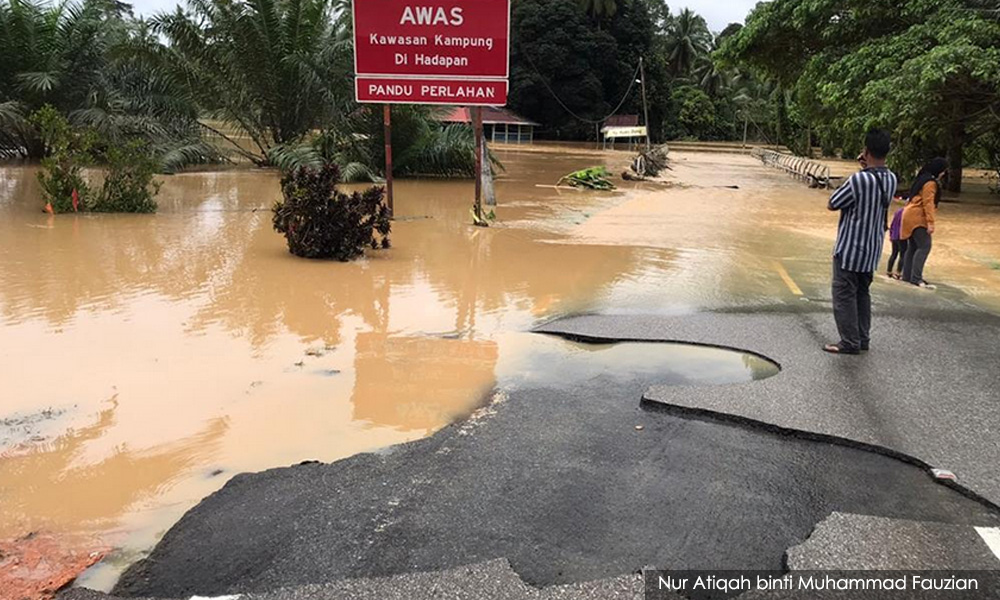Last month, a series of commentaries and news reports highlighted Malaysia’s “sick man” syndrome.
Bangi MP Ong Kian Ming referred to the Philippines of the 1970s and 1980s. Ong attributed this sickness to the archipelago’s poor economic record and high rate of divestments.
Drawing a parallel with Malaysia, the MP’s depressing assessment of Malaysia’s current and future status as a nation was based on declining foreign investor confidence.
Social media readers added to the discourse, declaring that our “flatline” income per capita (in US dollars) has been in stark contrast to other Asean nations. Further comparisons were made with South Korea and Taiwan, two countries that have managed to successfully emerge from the middle-income rut.
Seven years ago, Thailand was branded as the sick man of Southeast Asia. Again, this was attributed to its low economic growth, unstable politics and lack of investor confidence.
The further back we go chronologically, it is not uncommon to find articles, books and media commentaries referring to the sickness of various nations throughout history.
My reading of “the sick man of….” metaphor relates to more than poor economic or financial indicators. Rather, it is a predictive concept that exposes an endemic moral decline of society, conditioned by widespread decadence among leadership. When role models exude such depravity, a degenerate mentality develops among the general population as well.
Historically, usage of the term denoted a weak state, to be shunned by neighbouring states. In the past, such metaphors conveyed powerful geopolitical intent to isolate, contain or co-opt nations.
For example, from the mid-19th to the early 20th centuries, the British, French, Italian and Russian powers were expanding their spheres of influence in Europe. Ottoman-administered territories hindered the imperial designs of these powers in the eastern Mediterranean and the Middle East, North Africa, the Black Sea and Caucasus regions.
What followed was a deliberate campaign of verbal assault over the once-powerful Muslim empire. The parts of Europe under the Ottomans were declared “savage Europe” or “oriental Europe”.
This was a deliberate strategy of “othering” what was geographically European but geopolitically intrusive. Hence, the political, cultural and geopolitical entity had to be humiliated as part of the grand scheme to subdue and annihilate.
Part of this rejection also involved co-option. The Ottomans were declared the sick man of Europe at about the time they were invited to join the Concert of Europe.

Tsar Nicholas I of Russia is supposed to have first uttered the phrase, to the British envoy Sir George Hamilton Seymour, in 1853. The Czar said, “the Ottoman Empire was a sick man - a very sick man”.
The two words “of Europe” were apparently added later by an unknown source. Nevertheless, the intention was to psychologically emasculate the great Muslim empire, which was already showing signs of internal collapse.
On a cosmological scale, there are five reasons why civilisations collapse. These are uncontrollable population movements, new epidemic diseases, failing states leading to increased warfare, the collapse of trade routes leading to famine, and climate change.
On a national scale, we can get a glimpse of these five elements of collapse already apparent in our society. Scholars who have spent a lifetime studying why societies progress and decline tend to agree on three things - that societies become “sick” when leaders are oblivious to their arrogance; when their love of a luxurious lifestyle takes precedence over sustainable development of the nation, and when they politicise education.
When leadership possesses these characteristics, the damaging effect on society is substantial, and this inevitably leads to social alienation, political disarray and economic destruction.
First, a form of uncontrollable population movement has already taken place in Malaysia. The brain drain is very apparent. A Stanford University study revealed that Malaysia is a country seriously affected by the brain drain.
About ten years ago, talented Malaysians who live overseas numbered about 800,000. In 2019, this number swelled to 1.7 million. More than a third of these are 25 years of age and older, which is how the World Bank defines brain drain.
Malaysia is losing its talented human resource to other nations like Singapore, Australia, the United Kingdom and China.

Second, we are in the midst of the Covid-19 pandemic. It has inflicted havoc on our economy. Even though Malaysia is not the only country facing economic hardship, we are nevertheless faced with a monumental task ahead due to our political instability, which has rendered foreign investors jittery.
Third, we have been politically unstable since the Pakatan Harapan government came to power in 2018. Mischief makers within and without stirred up damaging uncertainty, using destructive identity politics to distract lawmakers.
Ultimately, the subsequent in-fighting around who would succeed former prime minister Dr Mahathir Mohamad proved lethal, culminating in the Harapan government’s collapse.
Fourth, even before the pandemic hit us, Malaysia was facing tough economic times. This was partly due to the external situation, namely the trade war between the US and China.
However, there was also a serious lack of planning in key areas of the economy. In particular, insufficient investments were made to improve health, nutrition, education and training for the medium and long term.
More attention was paid to short-term, current and expensively administered ineffectual petty payments. The current state of our food security is at an appalling level. The government of the day should ensure that all Malaysians have physical, social and economic access to sufficient, safe and nutritious food.
Fifth, more frequent extreme weather events in Malaysia are becoming a regular pattern. What used to happen once in a decade is now happening every two to three years.

The recent episodes of flooding in Kelantan, Terengganu, Johor, Pahang, Perak and Sarawak resulted in huge losses of lives, household displacement, routine disruption of human activities and economic damages that run into the millions.
What is more frustrating is how Malaysians seem to be oblivious to climate-induced disasters. We delude ourselves when we keep repeating the mantra that we are lucky to be in an earthquake-free zone. It is time to acknowledge that weather-induced disasters also contribute to food insecurity, poverty, famine and death.
The government must be more serious about including modules on climate change in our school curriculum. Our school-going children should be sensitised about strategies to mitigate weather-related disasters. Also, decision-makers should have the moral integrity to stop plundering our environment in the name of vulgar financial gain.
To be regionally or globally known as the “sick man” is humiliating. It is psychologically damaging and could render society incapable of recovery for at least two generations.
I hope our leaders will spare 32.7 million Malaysians this embarrassing and painful future.
SHARIFAH MUNIRAH ALATAS is an academic with zero tolerance for corrupt, arrogant and frivolous leadership. - Mkini
The views expressed here are those of the author/contributor and do not necessarily represent the views of MMKtT.



No comments:
Post a Comment
Note: Only a member of this blog may post a comment.